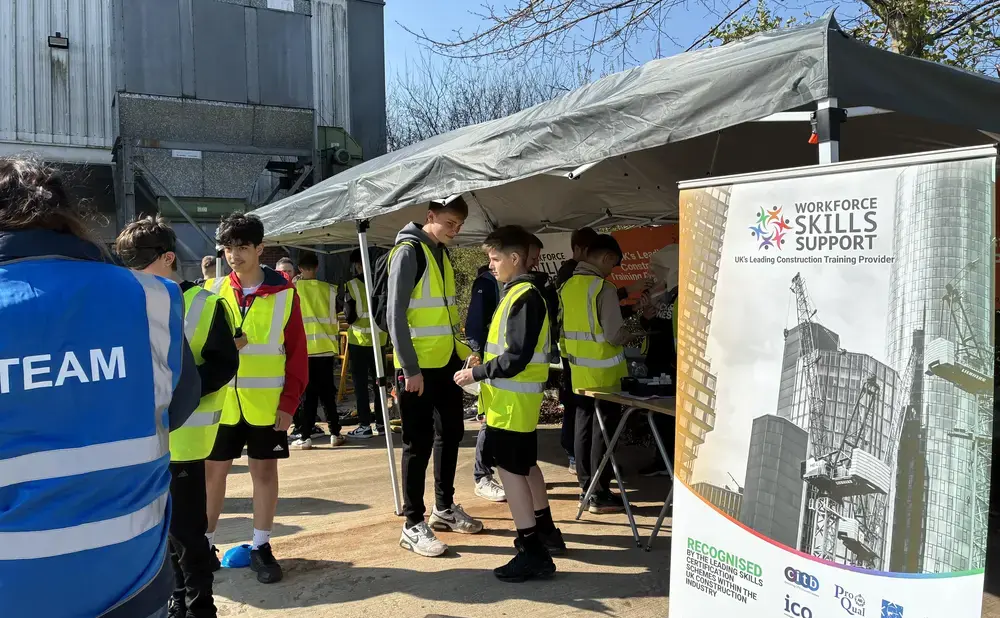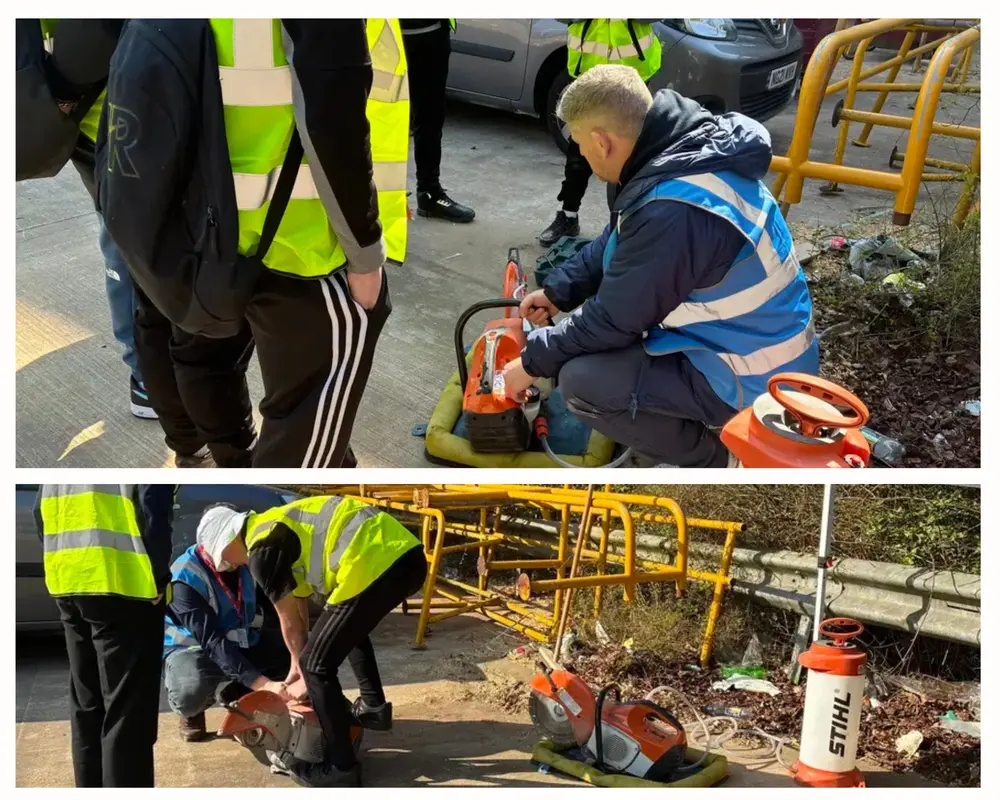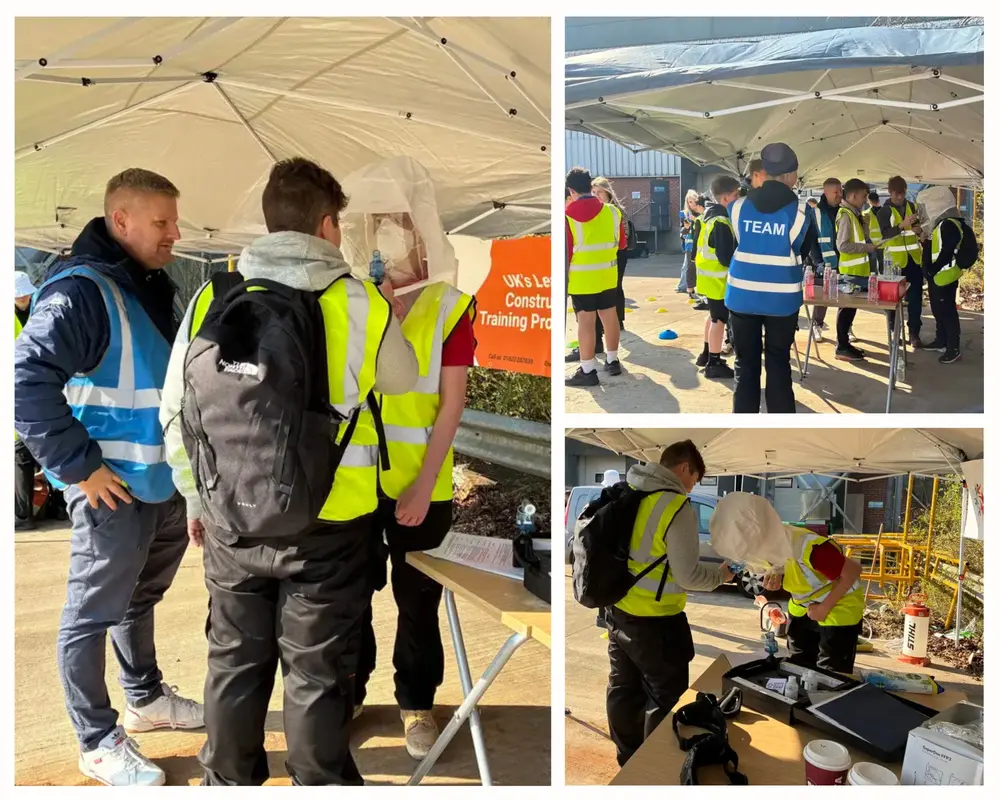No products in the basket.

As we reflect on the close of April, we’re proud to share the progress and partnerships that have marked a strong start to 2025.
One of the month’s key highlights was the “Get Into Construction” event on April 3rd, hosted by West Nottinghamshire College in collaboration with Action for Construction. Supported by CITB and West Notts College, the event brought together industry employers and enthusiastic learners for a day of practical demonstrations, hands-on engagement, and career inspiration.
We were pleased to participate alongside fellow industry leaders, delivering demonstrations on three essential safety areas: Traffic Marshalling, Abrasive Wheels Safety, Respiratory Protective Equipment (RPE) and Face Fit Testing. These are more than technical requirements, they are core competencies that protect lives, reduce risk, and support a more professional construction workforce.
Below, we take a closer look at each of these topics and why they remain critical to our training agenda to reinforce construction site safety.

The Traffic Marshall role is vital in busy construction environments, where space is limited and vehicle movement is frequent.
A trained Traffic Marshal supports:
Without this role, the likelihood of collisions, delays, accidents and injury increases significantly. Our traffic marshalling courses are designed to equip operatives with the knowledge and confidence to manage vehicle movements safely and efficiently.
Find out more about Traffic Marshal training

Abrasive wheels are a staple tool across construction and engineering sites, but improper use can lead to serious injuries. Ensuring operatives are correctly trained is both a legal requirement and a critical construction site safety measure.
Our training helps individuals understand:
At the event, learners gained valuable insights into the correct setup and operation of abrasive wheels, reinforcing the need for proactive safety measures when using high-speed cutting or grinding tools.
View our Abrasive Wheels training courses:
Abrasive Wheels Theory Training (Handheld Disc Cutter)
Abrasive Wheels Theory Training Refresher (Handheld Disc Cutter Refresher)
Abrasive Wheels With Practical
Handheld Disc Cutter Safety in Construction (Abrasive Wheels)
Handheld Disc Cutter Safety in Construction Refresher (Abrasive Wheels Refresher)

Respiratory risks in construction are often invisible, but the health consequences can be severe and long-lasting. Whether it’s silica dust, wood dust, or exposure to asbestos, the use of effective Respiratory Protective Equipment (RPE) is non-negotiable.
Proper training in RPE use includes:
During our demonstration, learners had the opportunity to explore the importance of RPE and how it plays a crucial role in preventing long-term conditions such as asbestosis, silicosis, and occupational asthma.
Learn more about our RPE safety training:
Respiratory Protective Equipment Training (RPE)
Investing in construction training doesn’t have to be a financial burden thanks to a range of CITB funding options, many courses can be significantly subsidised or even delivered at cost-neutral to employers.
Here’s a quick overview of the support currently available:
This fund is aimed at small to medium-sized employers (with up to 250 employees) who are CITB levy registered. It helps cover the cost of training that supports business development and workforce competence.
We can assist with the application process—get in touch for guidance.
The STF cost neutral training option for employers closed as of 31st September 2025
For CITB-registered employers, the short course grant scheme offers a set rate of funding per learner, per course. This applies to a wide range of training including:
CITB Employer Networks Funding (70% Funded Training)
Although the fully funded period of CITB Employer Networks concluded in March 2025 for construction NVQs, the CITB Employer Networks are still offering 70% funding for some construction training courses, providing a cost-effective way to upskill your workforce.
Need Help Accessing Funding?
We regularly support employers in securing grants and designing training plans that align with funding eligibility. Whether you’re looking to train a small team or deliver larger-scale workforce development, we’re here to guide you through the funding process.
Contact us today for a free consultation on how to make your training investment go further.
With CITB Employer Networks fully funded support concluding at the end of March, we remain focused on continuing learner registrations and delivering high-quality, targeted training.
Events like Get Into Construction reinforce the importance of engaging young people with practical, real-world insight into the construction industry and construction site safety. At Workforce Skills Support, we’re committed to building not only competence, but confidence ensuring individuals and employers alike are equipped for safe, sustainable success.
Get in touch with us to discuss training options, learner registration, or upcoming opportunities.